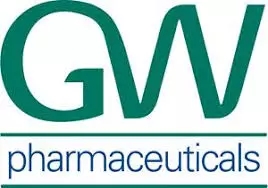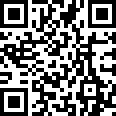
Privacy statement: Your privacy is very important to Us. Our company promises not to disclose your personal information to any external company with out your explicit permission.
Phase 3 clinical trial is active, cannabis drugs are expected to treat epilepsy
January 29, 2018 Source: WuXi PharmaTech
Window._bd_share_config={ "common":{ "bdSnsKey":{ },"bdText":"","bdMini":"2","bdMiniList":false,"bdPic":"","bdStyle":" 0","bdSize":"16"},"share":{ }};with(document)0[(getElementsByTagName('head')[0]||body).appendChild(createElement('script')) .src='http://bdimg.share.baidu.com/static/api/js/share.js?v=89860593.js?cdnversion='+~(-new Date()/36e5)];GW Pharmaceuticals and its US subsidiary, Greenwich Biosciences, recently announced that the authoritative medical journal The Lancet has published positive results from Phase III clinical trials of the cannabinoid Epidiolex (cannabidiol). This trial evaluated the efficacy of Epidiolex in patients with Lennox-Gastaut Syndrome (LGS).

LGS is a rare lifelong form of epilepsy. It develops from childhood and is associated with high mortality and significant developmental delay. Up to 30% of patients cannot find the cause of the disease. LGS patients usually have multiple types of seizures, including falls and convulsive seizures, leading to falls and injuries. These patients are in desperate need of new treatments to control the disease.
Epidiolex, as a major drug candidate for GW, has the potential to become a new class of anti-epileptic drugs (AEDs). It is purified cannabinol (CBD), a cannabinoid that lacks euphoric side effects and is currently being studied for the treatment of some rare, severe childhood seizures. The US FDA accepted Epidiolex's new drug application (NDA) for the treatment of LGS and Dravet syndrome in December last year and is expected to respond by June 27 this year. The European Medicines Agency (EMA) also accepted the Epidiolex Marketing Authorization Application (MAA) in December last year and is expected to make a decision in early 2019.

A total of 171 LGS patients between the ages of 2 and 55 were enrolled in the study, and their seizures were not controlled by existing treatment regimens. These patients were randomized to receive Epidiolex (20 mg/kg/d) or placebo over existing treatments. Their median seizure frequency at baseline was 74 times per month. During the 14-week treatment period, patients in the Epidiolex group had a more significant median reduction in seizures (44% vs. 22%, p=0.0135) compared with the placebo group, reaching the primary end point of the study. Sensitivity analysis confirmed that the therapeutic effect of the drug was determined during the first month of treatment and persisted throughout the treatment period. Results from the critical secondary endpoints showed that significantly more patients in the Epidiolex group experienced a 50% reduction in seizures compared with the placebo group (44% vs. 24%, P=0.0043), and the total onset of the Epidiolex group The frequency was significantly reduced (41% vs. 14%, p=0.0005). In addition, patients were well tolerated in the treatment of Epidiolex, and the safety was consistent with previously reported results.

▲ Mr. Justin Gover, CEO of GW (Source: GW official website)
“This landmark study of The Lancet is an exciting achievement. After the publication of the New England Journal of Medicine (NEJM) last year, Epidiolex published for the second time in a well-known magazine. Data," said GW's CEO, Justin Gover, "These published data highlights the potential of Epidiolex to address the major unmet needs of two very challenging epilepsy, LGS and Dravet syndrome. We look forward to working with FDA and EMA Collaborate to review the market application of Epidiolex. We focus on providing this important new drug to the right patients and caregivers as soon as possible."
“The publication of these positive results is an exciting milestone for the LGS community, and we are encouraged by the fact that a new treatment will soon emerge,” said Dr. Christina San Inocencio, Executive Director of the LGS Foundation: “ For patients who continue to struggle with uncontrolled seizures, they are in desperate need of additional treatment options that provide much-needed hope for those suffering from this debilitating disease."
“LGS is one of the most difficult types of epilepsy to treat, and most patients do not respond adequately to existing therapies,” said lead author of the study, director of pediatric epilepsy at Massachusetts General Hospital and professor of neurology at Harvard Medical School. Dr. Elizabeth Elizabeth Thiele said: "These results suggest that Epidiolex may provide clinically meaningful benefits for LGS patients."
“Uncontrolled seizures can seriously affect the lives of patients and their families. Epilepsy such as LGS, which is difficult to treat, has a huge demand for new treatment options,” said Philip Gattone, President and CEO of Epilepsy Foundation. Randomized controlled clinical studies have provided positive evidence that cannabinol may reduce seizures. We are excited about the potential new treatment options for LGS."
We expect this new drug to offer new treatment options for patients suffering from seizures.
Reference materials:
[1] GW on fire: PhIII epilepsy data signals success ahead for first CBD drug
[2] GW Pharmaceuticals official website
August 21, 2024
August 07, 2024
E-mel kepada pembekal ini
August 21, 2024
August 07, 2024
November 15, 2024
Hantar pertanyaan

Mr. Jarvis
Tel:86-0523-83320899
Fax:86-0523-83320899
Telefon mudah alih:+86 15252670022
E-mel:tianhe@skyplant.cn
Alamat:Nanshan Road, Zhaoyang Industrial, Xinghua, Taizhou, Jiangsu
Tapak Mudah Alih


Privacy statement: Your privacy is very important to Us. Our company promises not to disclose your personal information to any external company with out your explicit permission.

Fill in more information so that we can get in touch with you faster
Privacy statement: Your privacy is very important to Us. Our company promises not to disclose your personal information to any external company with out your explicit permission.